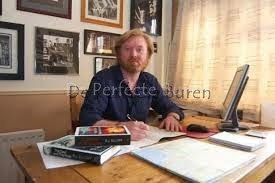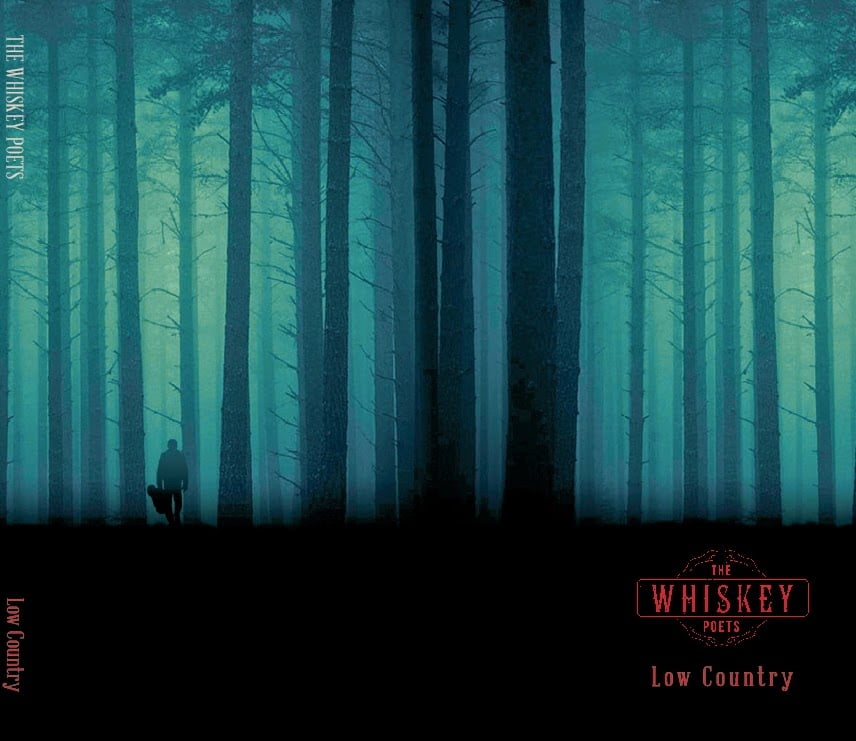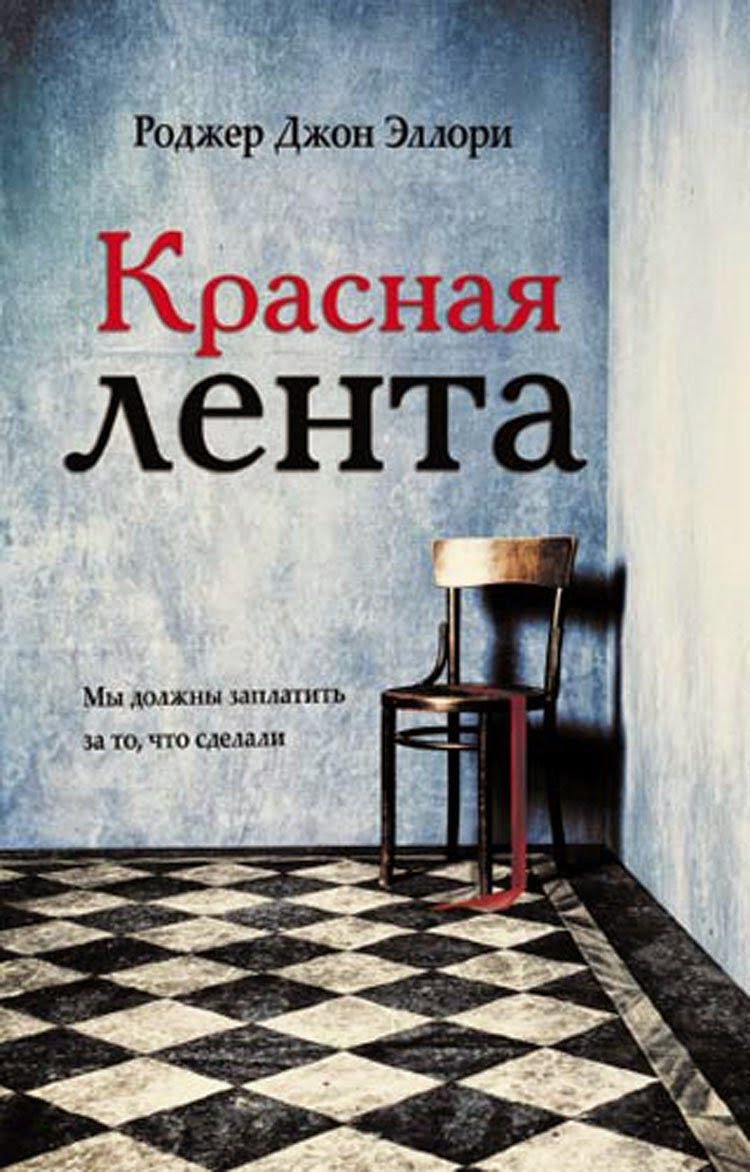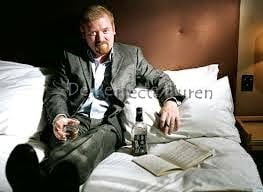 Who is R.J. Ellory?
Who is R.J. Ellory?
Englishman, writer, musician, husband, father, part-time cook, photographer, painter, poet, lyricist, carpenter…and a few other random things! I am just like anyone else, I guess. Trying to do the best I can to make a difference in a world that seems to have gone quite crazy!
Tell us something about your youth. You don’t know your father, your mother passed away at a very young age and you grew up partially with your grandmother and in boarding schools. How do you look back on this part of your life?
I don’t really look back on it, to be honest. There’s that line in the Joni Mitchell song, ‘You don’t know what you’ve got ’til it’s gone’. That seems to fit this context. I never really had a family around me, and so there’s nothing to miss. I think boarding school was a very valuable experience. It makes you get along with people; it makes you take responsibility for your own decisions and the consequences of those decisions; you get into trouble, you can’t call mom or dad to help you out or send you some money or anything like that. You have to deal with it yourself. So, from the viewpoint of preparing you for life, I think it was a very, very good thing.
After a year you stopped your study of graphic arts and design. Not what you were looking for then?
I was studying Graphic Art for one year in Birmingham between 16 and 17. Then my grandmother died, and I dropped out. I was never really happy doing that, and my grandmother was quite a strong presence at the time and insisted that I pursue some sort of academic path. As soon as she died there was no-one there to tell me I had to do it, so I stopped. What was I looking for? I guess the same as everyone else: Why was I here? What am I going to do with my life? Where do I go now?
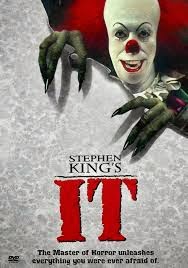 And when did you decide to write? Was it all of a sudden?
And when did you decide to write? Was it all of a sudden?
I was 22 years old. I met a stranger and we started talking about books. He was reading ‘It’ by Stephen King. He was so passionate about the book. He couldn’t stop reading it. I thought, ‘I want to do something like that. I want to write a book that makes someone feel that way.’ So I started writing that evening. November 4th, 1987.
Has your youth played a role in starting to write things?
I think it must. There is that perennial question: How much of an author’s work is autobiographical? I think we absorb so much from life – some of it good, some of it bad. We take in events and circumstances, we deal with them (or not), we recover, we carry on, we try our best with everything we do. Sometimes we get it right, other times we get it wrong. That is life, and that is living. As with any field of the arts – whether it be painting, sculpture, choreography, musical composition – the creator must draw on personal experience and personal perception in everything he or she creates. I think that what we paint and what we write and what we sing are merely extensions of ourselves, and that extension grows from personal experience. I think there are very few writers who write their own lives into novels, but I think there are a great deal who write their perceptions and conclusions and feelings about their own lives and the lives of others into the characters they create. If they can do that well, then people can connect with those characters because we all share those same human experiences. We have all lost someone we loved. We have all tried to do something and failed. We have all been stupid or irresponsible or mean or cruel. That’s what makes us sympathetic and empathetic. That’s what makes us human, I guess.
Between 1987 and 2001 you wrote 22 novels which were not published. Do you think, now you’re a very well know author, you still will or want to publish something of that?
I don’t think so, no. That was my university of writing. That was my way of gaining experience and finding out how to write and what I wanted to write about. I think there is a lot of very good material there, but I am always too interested in what I can create now rather than going backwards and recreating something I have done before.
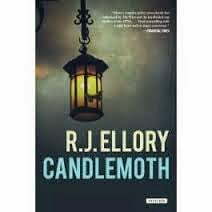 And then there’s this manuscript. In 2003 the novel “Candlemoth” was published. How did that feel after all the rejections?
And then there’s this manuscript. In 2003 the novel “Candlemoth” was published. How did that feel after all the rejections?
Well, it felt like I had found the love of my life. and every day for fifteen years I asked her to marry me, and every day she ignored me and ignored me and ignored me. And I kept on asking, and I kept on asking, and then after fifteen years of nothing she said, ‘Yes.’
What did you learn during that time?
Persistence. That the only way to accomplish anything is hard work. That there is no such thing as luck. That you can go on working no matter how you feel. That writing – like anything else – is driven by passion and a belief that you can do it. I think of Picasso, interviewed at the end of his life. He was asked why he went on working so may hours of the day, even with this incredible legacy of work behind him, and he said soemthign like, ‘Because when inspiration finds me, and finds me she rarely does, I want her to find me hard at work.’
What is your advice for the upcoming writers to do in a situation like that?
I believe the worst kind of book you can write is the book that you believe other people will enjoy. I believe the best kind of book you can write is the one that you yourself would like to read. Write the book that interests you. Your own enthusiasm for the subject will come through. That enthusiasm will then be contagious. I don’t know if readers generally give a book so long before they decide whether or not they will continue reading it or give up on it. I know with films that you are supposed to have decided whether or not you’re going to like the film within three minutes or something, and I don’t know whether books are the same. Personally, I am sometimes captivated more by the language used than the story itself. I read books that do not have a compelling plot, but the language with which they are written is so beautiful and inspiring that I read them just as compulsively, often forcing myself to slow down so I don’t finish the book too quickly! I think that a lot of truly extraordinary and very successful books don’t work as original ideas, but because of the way in which they have been written or constructed, they have worked, and worked wonderfully. Books that tell you how to write a bestseller in thirty days…well, I don’t know what to say. I think great stories come from people and their experiences in life, not from formulas. But then perhaps it depends on the type of book you want to write. I’m interested in writing books that people can be emotionally and mentally involved with and challenged by. I’m not interested in writing two hundred and fifty page mysteries with a dead body at the start and a surprise killer at the end.
Not that there’s anything wrong with that kind of book! Quite the contrary. It’s just that I don’t want to create that kind of thing personally. Beyond that, you have to persevere and persist and never give up. Keep sending that book out. Get an agent. Get someone working with you who is as enthusiastic as you are about your work. And then just keep going! The one quote that kept me from giving up was from Disraeli: ‘Success is entirely dependent upon constancy of purpose.’
Your stories occur mainly in the States. What’s the reason for that?
I think I grew up with American culture all around me. I grew up watching Starsky and Hutch, Hawaii Five-O, Kojak, all those kinds of things. I loved the atmosphere, the diversity of culture, the fact that every state is entirely different from every other, and there are fifty of them. The politics fascinated me. America is a new country compared to England, and it just seems to me that there was so much colour and life inherent in its society. I have visited many times now, and I honestly feel like I’m visiting my second home. And I believe that as a non-American there are many things about American culture that I can look at as a spectator. The difficulty with writing about an area that you are very familiar with is that you tend to stop noticing things. You take things for granted. The odd or interesting things about the people and the area cease to be odd and interesting. As an outsider you never lose that viewpoint of seeing things for the first time, and for me that is very important. Also many writers are told to write about the things they are familiar with. I don’t think this is wrong, but I think it is very limiting. I believe you should also write about the things that fascinate you. I think in that way you have a chance to let your passion and enthusiasm for the subject come through in your prose. I also believe that you should challenge yourself with each new book. Take on different and varied subjects. Do not allow yourself to fall into the trap of writing things to a formula. Someone once said to me that there were two types of novels. There were those that you read simply because some mystery was created and you had to find out what happened. The second kind of novel was one where you read the book simply for the language itself, the way the author used words, the atmosphere and description. The truly great books are the ones that accomplish both. I think any author wants to write great novels. I don’t think anyone – in their heart of hearts – writes because it’s a sensible choice of profession, or for financial gain. I just love to write, and though the subject matter that I want to write about takes me to the States, it is nevertheless more important to me to write something that can move someone emotionally, perhaps change a view about life, and at the same time to try and write it as beautifully as I can. I also want to write about subjects – whether they be political conspiracies, serial killings, race relations, political assassinations or FBI and CIA investigations – that could only work in the USA. The kind of novels I want to write just wouldn’t work in small, green, leafy villages where you find Hobbits!
Would you be willing or able to live in the US? And what would be the main reason?
I don’t believe I could live there, no. Great to visit, of course, and I visit as much as I can, but there are too many things about the American Way of Life with which I disagree for me to be happy there on a permanent basis. I possess a British and European attitude and mentality about too many things to tolerate the American Dream…a dream which has become a bit of a nightmare, to be honest!
You do a lot of traveling to promote your books. Do you also immediately get ideas for your stories while you’re there?
Of course, yes. Ideas come from life, whatever you might be doing or wherever you find yourself. They come from newspapers and magazines, from conversations, debates, discussions. I overhear things that people say and they trigger thoughts for me. I think ideas for novels just come from associating with others, from listening, from asking questions. I have an inquisitive mind, and whenever something does not make sense I like to get involved and find out why it does not make sense. As a child I wanted to be a journalist, and that love for non-fiction, for writing and reading material that actually comes from real life, has stayed with me.
You have set the goal to write at least 40.000 words each month. Do you require that deadline for yourself? If you wouldn’t do that then what?
I have just found that this demand works for me. I just work the way I work. Every writer works a different way, I am sure. I just find myself with so many things to do, and I really have to discipline myself and keep in a schedule and a structure when I am writing a book. I lock myself away and do the work, and that is the way it works best for me.
How would you describe your method of writing?
For years I wrote longhand, almost three million words, but now I use a computer. Sometimes when I’m away from home I’ll write longhand, and then transcribe when I return. I tend to write a whole book, furiously ploughing through it, and then I go back through from start to finish and handle all the snags, anomalies, mistakes, cut back on the over-writing as best I can. It’s kind of organic in a way, like it’s something that takes on certain character aspects of its own. It’s like living with a bunch of people for a few weeks, and you watch them grow, watch them take control of certain elements of the story, and then when you’re done it’s like losing something. Capote once said that finishing a story was like taking a child out into the yard and shooting them. Perhaps a little melodramatic, but I know what he means! When a book is finished it kind of leaves a hole in you, and then you have to start another one right away!
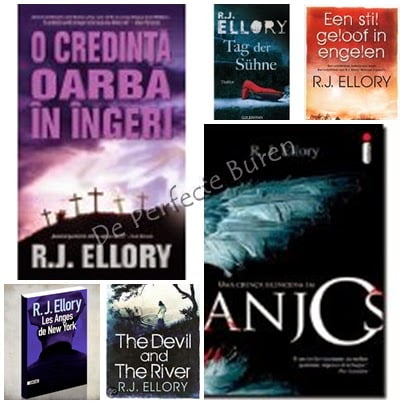 Your work has been translated in more than twenty languages. Which language is still missing on your wish list?
Your work has been translated in more than twenty languages. Which language is still missing on your wish list?
I have never thought about this! There are so many major languages already. I think the main thing is that you hope those countries will keep on taking the books and translating them, that people will keep on reading them. Making a book work in another langauge is a very challenging thing as the original langauge in which the book is written is so important an element in the way the book is created, so sometimes it works and sometimes it just doesn’t.
What do you think is your best book so far?
Impossible question! That’s like asking a father with ten children which one he loves the most! I was once asked which of my books I would leave as a legacy if I could only leave one. I think it woud have to be A Quiet Belief in Angels or A Quiet Vendetta. However, I always think the book I am working on is the best, but the real answer is that my best book has not yet been written!
Last year in Zoetermeer you told us you weren’t a big fan of British politics. In brief, what needs to be different (or change) now in the UK/Europe?
I think we all feel the same way, don’t we? We want politicians and business and banking and pharmaceutical coporations and public services to be honest and decent. We want them to work for the people as opposed to just working for themselves. We want them to stop spending our money on war and drugs and political propaganda. If a single individual behaved in the way that most governments do, then we would never accept it or tolerate it, and yet we let them behave this way every day. I do not believe I am in alone in my disrespect and distrust of politicians,. And I think it is the same in every country in the world.
Apart from writing, you are also active in the band The Whiskey Poets. What is your role in the whole?
I am the singer, guitar player and I write all the songs with my writing partner, Martin Smith (from ELO).
If writing is your Yin, is music than your Yang?
I think that they are both halves of the same whole. I think they are both extensions of the same creative impulse. They are quite different in their approach, but they each satisfy a different need within me to make something out of nothing.
For those who don’t know the band; what kind of music do you make? Do you also write lyrics? And if so what is the biggest difference between writing a book and lyrics?
The band, as you said, is called The Whiskey Poets. I write all the lyrics, and then I work with a great friend of mine, the bass player from ELO, and we put the music together. We have surrounded ourselves with some great musicians and we have just finished the first album (called, ironically, ‘Low Country’, seeing as how I am doing this interview for Dutch readers!). It is kind of blues, kind of country, but is is our own thing. I think I write books that are not quite like anyone else’s, and I write music the same way. Writing a song is perhaps like writing a chapter; writing an album is perhaps like writing a book, but at the same time they are nothing like one another. You can write a song in the morning, rehearse in the afternoon, play it in a club in the evening. The response from the audience is immediate. A book is very slow. It might take three or four months to write, and then it does not appear in the stores for a year. It is a very different energy and a very different dynamic.
A question of conscience. You have to choose between writing and music, what will it be?
I will always be a writer, first and foremost, but I can do both, and so I will do both! If I really had to make a choice, then I would write.
How do you experience the contact with your readers? You are very approachable, you recognize everybody and you remember everything. Is that who you are or is that a role you play?
No, that’s who I am. I am not playing a role. I like people. I love people. I love talking to people, meeting people, travelling, gaining new experiences. I like doing things for the first time. I like discovering new interests and finding out what interests other people have. I am the guy who will always sit in the front seat in a taxi so I can talk to the driver.
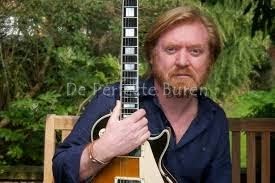 Where would you prefer to build a house? Who and what do you absolutely take with you?
Where would you prefer to build a house? Who and what do you absolutely take with you?
I would build several houses. Austin, Texas; Nashville, Tennessee; Paris; Montpellier; Amsterdam; maybe even one somewhere in England. I have visted many, many countries, possibly sixty or seventy different cities around the world, and I was thining about this a while ago. Which cities really stand out in my mind? Which ones did I arrive in and feel that I could live there, that there was somehting truly special about it? I came to the conclusion that all the special ones had a great literary or musical heritage. You could feel it. There was something different and unique. The city had a character as strong and as defined as nay person. Who would I take? My wife, my son, the cat, my guitars, my laptop, my books, my records.
How do family and friends describe you?
Always busy! Kind of intense, but not manic. My wife says I am funny and charming, but she probably wants some more shoes! I am always doing something, always creating something. In the summer, just after I had finished a book, I completed the songs for the album and then I had some free time so I started building furniture. I built bookcases, CD cases, a shoe rack for my wife, a guitar stool…and I had never done anything like that before. I wanted some furniture, I couldn’t find what I wanted, so I built it. I never met my maternal grandfather as he died before I was born, but he was a carpenter. Maybe I have carpentry genes!
For what may we wake you up during the night? How was the coffee 😉 (We gave R.J. coffee while visiting Amsterdam, just a joke!)
The feeling that I am wasting time. The feeling that I am not workig hard enough. The feeling that I could be doing more. And the coffee was good. I am a big fan of coffee!
Questions from our readers;
I’m trying to get in touch with a literary agent in England. My question to R.J. Ellory is: Can you please advise me in this? And how did you break through internationally? And do you have any tips regarding the promotion of a book in the digital era? I am very curious what his point of view is about this.
I am a little baffled by the digital age. The interent is a like a thunderstorm, and everyone is shouting at the same time to try and be heard. I have three facebook pages, two twitter accounts, a website, a blog, and I am posting things all the time. However, most of the time it really does feel like no-one can hear you! As for obtaining an agent, I can only give you advice based on my own experience. You have to write to a lot of them, and their names and addresses are all available in soemthing called The Writers’ and Artists’ Yearbook. This is published annually in the UK, and there are many dozens of literary agents listed in there. Find those agents that represent the kind of material you write and contact them. There is no shortcut. It is a job all its own! I broke through internationally as a result of having a London-based publisher with an overseas division. They wrok on your behalf in approaching foreign publishers. That is one of the many things you do not get when you publish yourself.
Will there be a book in the nearby future that will happen in England or do you stay faithful to the USA?
I have no plan to write anything set in England.
I’m not familiar with your books yet. Give me a reason why I should read them or find out more about them.
I think I write human dramas. I think I create fictional characters that could quite easily be real people. I have always been far more interested in the psychology of human beings than anything else. Emotions, attitudes, viewpoints, where people come from, the consequences of their actions. This is deeply interesting to me. Also human emotions. I think crime is capable of not only making a social commentary very powerfully, but also – as you are placing someone in a difficult or unusual situation – you are also able to portray the whole range of human emotions. My ideas come from life, from talking to people, from meeting people, from listening to their thoughts and attitudes about things. I think the idea of the ‘guilty’ character looking back over their life and considering their actions, and the consequences of their actions, is a natural human thing that we all do, and I feel it is a great way to tell a story from the emotional and mental point of view. So how would I describe my novels? They are dramas about life, about real people facing real situations, and they are usually placed against historically-accurate events. My intention is to engage, entertain, to open a door into someone else’s life and make you feel as though you have walked through that door. I want you to read a book and feel like you really know this person and what they are experiencing. I want you to think about the book even when you are not reading it, and when you are done I want you to remember how that book made you feel.
If you follow Ellory a bit than you know he does a lot of traveling. Every year he writes such a wonderful book. How does he do this and when?
I love to write. I do not find it a burden or a problem. I can sit down and write for three or four or five hours and really enjoy it. There are one hundred and sixty eight hours in a week. I sleep for about fifty. That gives me over a hundred hours to get busy! I don’t play computer games and I don’t watch a lot of TV, either!
Roger on social media;
https://www.facebook.com/pages/R-J-Ellory/15618806922
https://www.facebook.com/pages/R-J-Ellory/105837776285915
